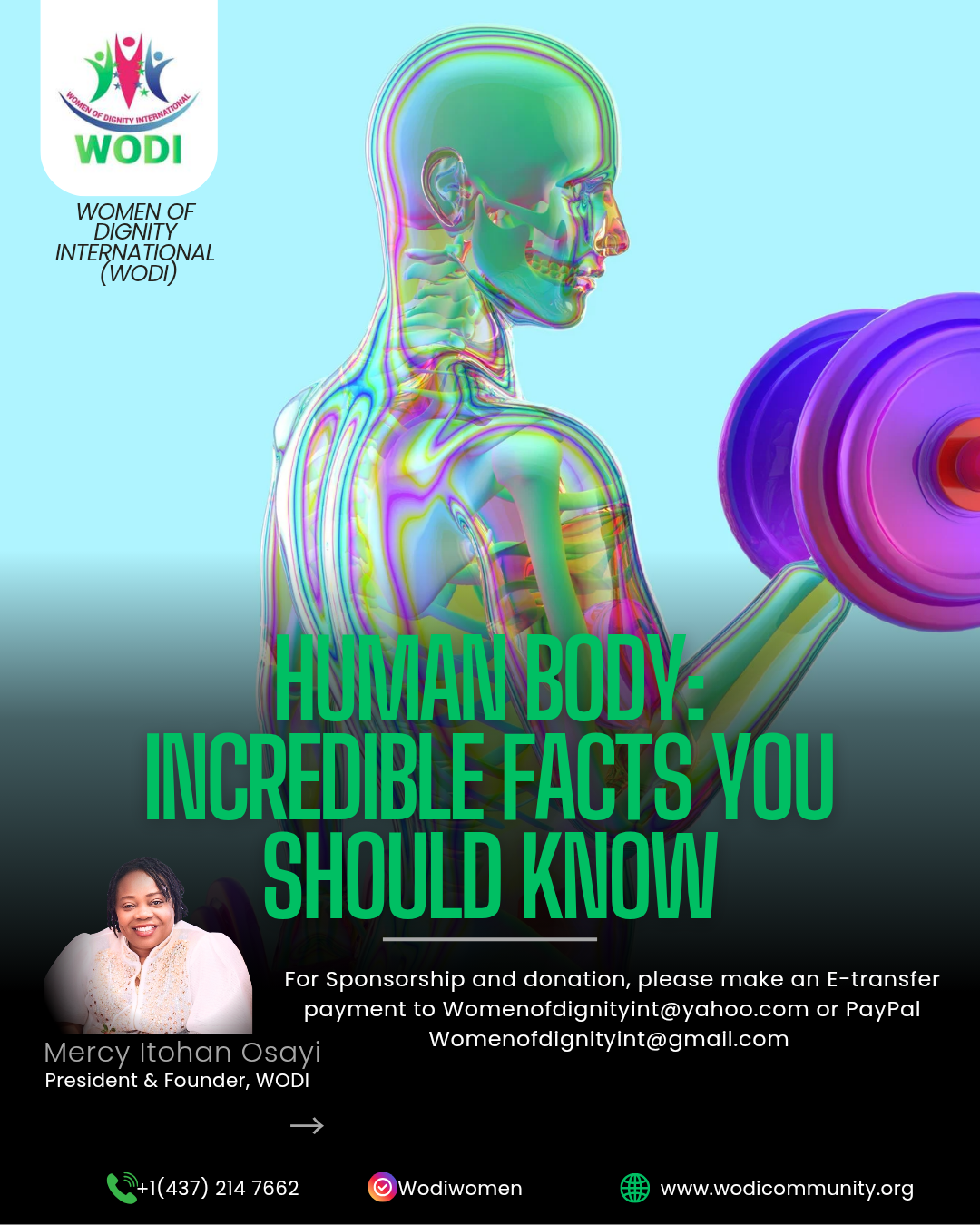Human Body: Incredible Facts You Should Know

Human Body: Incredible Facts You Should Know
The human body is a marvel of biological engineering, a complex system that performs a multitude of functions essential for survival and well-being. Here are some incredible facts about the human body that highlight its complexity, adaptability, and resilience.
1. Cellular Complexity
The human body is composed of approximately 37.2 trillion cells, each specialized for specific functions. These cells work together to form tissues and organs, allowing us to perform essential activities like moving, thinking, and healing. Interestingly, the body contains more bacterial cells than human cells—about 40 trillion—mostly residing in the gut microbiome, which plays a crucial role in digestion and immunity.
2. Brain Power
The human brain is one of the most complex structures known to science. Weighing about 3 pounds, it contains around 86 billion neurons that communicate through trillions of synapses. The brain consumes roughly 20% of the body's total energy, despite accounting for only about 2% of its weight. It is responsible for regulating bodily functions, processing sensory information, and enabling cognitive abilities such as reasoning, memory, and emotion.
3. Heart Health
The heart is a remarkable organ that pumps blood throughout the body, delivering oxygen and nutrients to tissues while removing waste products. It beats about 100,000 times a day, pumping roughly 2,000 gallons of blood. Over a lifetime, the heart can pump enough blood to fill an Olympic-sized swimming pool!
4. Bone Strength
The adult human skeleton consists of 206 bones, which provide structure and support to the body. Interestingly, bones are incredibly strong; in fact, a cubic inch of bone can bear the weight of about five standard pickup trucks. The femur (thigh bone) is the strongest bone in the body and can withstand forces up to 1,800 pounds.
5. Skin: The Body's Shield
The skin is the largest organ of the human body, covering an average area of about 18 square feet in adults. It serves as a protective barrier against pathogens, regulates temperature through sweat and blood flow, and allows for the sensation of touch. Remarkably, the skin constantly regenerates itself; every month, you shed about 8 pounds of dead skin cells.
6. Muscle Power
The human body has over 600 muscles that account for approximately 40% of total body weight. The strongest muscle based on its size is the masseter (jaw muscle), while the gluteus maximus is the largest muscle in the body. Muscles work in pairs to enable movement; when one muscle contracts, its counterpart relaxes.
7. Digestive Wonders
The digestive system is an intricate network that transforms food into energy. It begins in the mouth and continues through the esophagus, stomach, small intestine, and large intestine before waste is expelled. The small intestine alone is about 20 feet long and has a surface area roughly the size of a tennis court, allowing for efficient nutrient absorption.
8. Immune System Defense
The immune system is a complex defense mechanism that protects the body from infections and diseases. It consists of various cells and organs, including white blood cells, lymph nodes, and the spleen. A healthy immune system can distinguish between millions of different pathogens and mount an appropriate response.
9. Regenerative Abilities
The human body has remarkable regenerative capabilities. For instance, the liver can regenerate itself after surgical removal or injury; as little as 25% of a healthy liver can grow back to its full size within months. Similarly, skin can heal rapidly from cuts and abrasions thanks to its regenerative properties.
10. Unique Fingerprints
No two individuals have identical fingerprints, making them a reliable means of identification. Even identical twins have different fingerprints due to variations in skin ridge patterns formed during fetal development.
Conclusion
The human body is a fascinating entity filled with intricate systems and processes that work harmoniously to sustain life. Understanding these incredible facts not only highlights our biological complexity but also emphasizes the importance of maintaining our health through proper nutrition, exercise, and self-care. As we continue to explore the wonders of the human body, we gain greater appreciation for our own existence and resilience.
